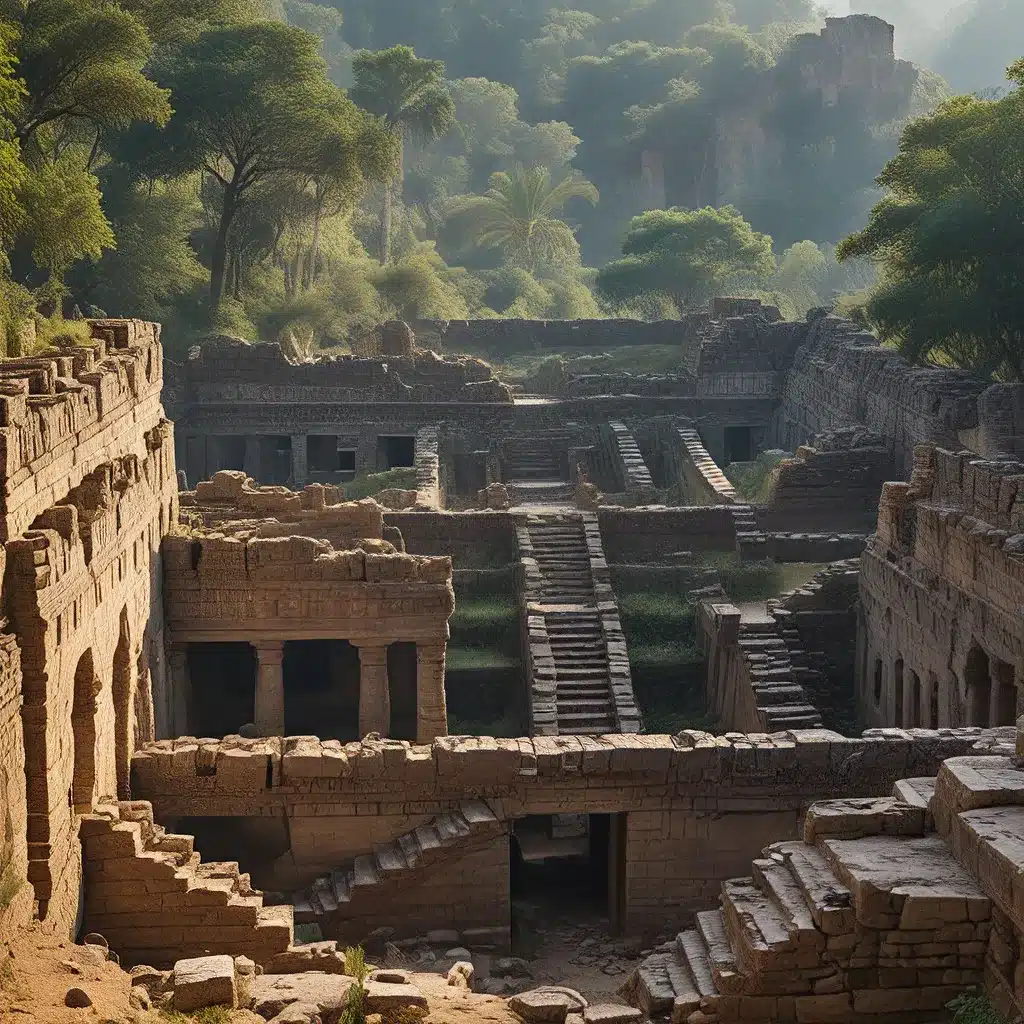
Throughout history, human civilization has been marked by the rise and fall of mighty empires, each leaving behind a tantalizing trail of ruins and artifacts that captivate the imagination. From the ancient Egyptian monuments that have stood the test of time to the mysterious Mayan cities hidden deep in the jungles, these remnants of bygone eras offer a glimpse into the lives, cultures, and technological achievements of our ancestors.
The Allure of Ancient Ruins
The pursuit of uncovering the secrets of lost civilizations has long been the domain of passionate archaeologists, historians, and adventurers. These enigmatic ruins beckon us to unravel their mysteries, to understand the stories they hold, and to piece together the fragments of a past that often seems beyond our comprehension.
One of the most intriguing aspects of ancient ruins is the sense of wonder and discovery they evoke. As you walk among the crumbling walls and weathered statues, it’s as if you can feel the weight of centuries pressing upon you, whispering tales of grandeur, conflict, and the ebb and flow of human civilizations. Each artifact unearthed, each inscription deciphered, becomes a key that unlocks a new door to the past, revealing the rich tapestry of our collective human heritage.
The Mysteries of Lost Civilizations
Throughout the world, the ruins of forgotten civilizations continue to captivate and mystify us. From the enigmatic Nazca Lines of Peru to the submerged cities of the Mediterranean, these ancient sites challenge our understanding of the past and spark our curiosity about the technological and cultural advancements of bygone eras.
One of the most fascinating examples of a lost civilization is the Indus Valley Civilization, which thrived in what is now modern-day India and Pakistan during the Bronze Age. This advanced society, with its extensive urban planning, sophisticated sanitation systems, and impressive artistry, vanished from the historical record, leaving behind a tantalizing puzzle for archaeologists to piece together.
The Indus Valley Civilization is just one of many ancient cultures that have captured the imagination of scholars and the public alike. The Mayans, the Aztecs, and the Incas are other examples of civilizations that left behind architectural marvels, intricate calendars, and advanced mathematical and astronomical knowledge, only to eventually decline and disappear, leaving their ruins to be rediscovered centuries later.
Groundbreaking Archaeological Discoveries
The field of archaeology has been transformed in recent decades, with new technologies and scientific advancements enabling researchers to uncover and analyze ancient remains in ways that were once impossible. Ground-penetrating radar, satellite imagery, and DNA analysis are just a few of the tools that have revolutionized the way we study and understand the past.
One of the most significant archaeological discoveries in recent years was the unearthing of the Terracotta Army in China. This vast collection of life-size terracotta warrior statues, created to guard the tomb of the first Qin emperor, stunned the world and provided invaluable insights into the military might and artistic prowess of ancient Chinese civilization.
Another remarkable finding was the discovery of Göbekli Tepe in Turkey, a monumental prehistoric temple complex that predates the construction of the pyramids in Egypt by thousands of years. This remarkable site has challenged our understanding of the development of early human societies, suggesting that the origins of organized religion and complex social structures may have emerged much earlier than previously thought.
| Archaeological Discovery | Significance |
|---|---|
| Terracotta Army, China | Provided insights into the military might and artistic prowess of ancient Chinese civilization. |
| Göbekli Tepe, Turkey | Challenged our understanding of the development of early human societies, suggesting the origins of organized religion and complex social structures emerged earlier than previously thought. |
The Influence of Ancient Civilizations on the Modern World
The ruins and artifacts of lost civilizations not only fascinate us, but they also reveal the profound influence that these ancient cultures have had on the modern world. From the lasting architectural styles and engineering marvels to the persistent cultural traditions and philosophical ideas, the legacies of these bygone eras continue to shape our understanding of human development and progress.
Take, for instance, the enduring impact of ancient Greek civilization. The philosophical teachings of Socrates, Plato, and Aristotle continue to echo through the ages, influencing our understanding of ethics, politics, and the nature of the human condition. Similarly, the architectural wonders of ancient Rome, such as the Colosseum and the Pantheon, have inspired countless structures and design elements in the modern built environment.
In a similar vein, the mathematical and astronomical achievements of the Mayans and the Babylonians have influenced our understanding of the cosmos and the passage of time, while the advanced engineering of the ancient Egyptians and the Incas continues to amaze and inspire modern-day builders and engineers.
Preserving the Past for the Future
As we delve deeper into the mysteries of lost civilizations, it becomes increasingly clear that the preservation of these ancient sites and artifacts is of paramount importance. These irreplaceable historical treasures not only hold the keys to unlocking our understanding of the past, but they also serve as a vital link between the present and the stories of our ancestors.
The Lost Kingdoms, a website dedicated to the exploration and conservation of ancient ruins, emphasizes the critical role that responsible tourism and sustainable preservation play in safeguarding these fragile historical legacies. By fostering a culture of respect and stewardship, we can ensure that the enigmatic ruins of lost civilizations continue to captivate and inspire future generations.
Through the lens of archaeology and historical exploration, we are granted a unique opportunity to unravel the mysteries of the past, to better understand the triumphs and struggles of our ancestors, and to appreciate the enduring influence of these ancient cultures on our modern world. As we continue to uncover the hidden secrets of lost civilizations, we are reminded of the profound impact that the ruins of the past can have on shaping our understanding of the present and our vision for the future.


